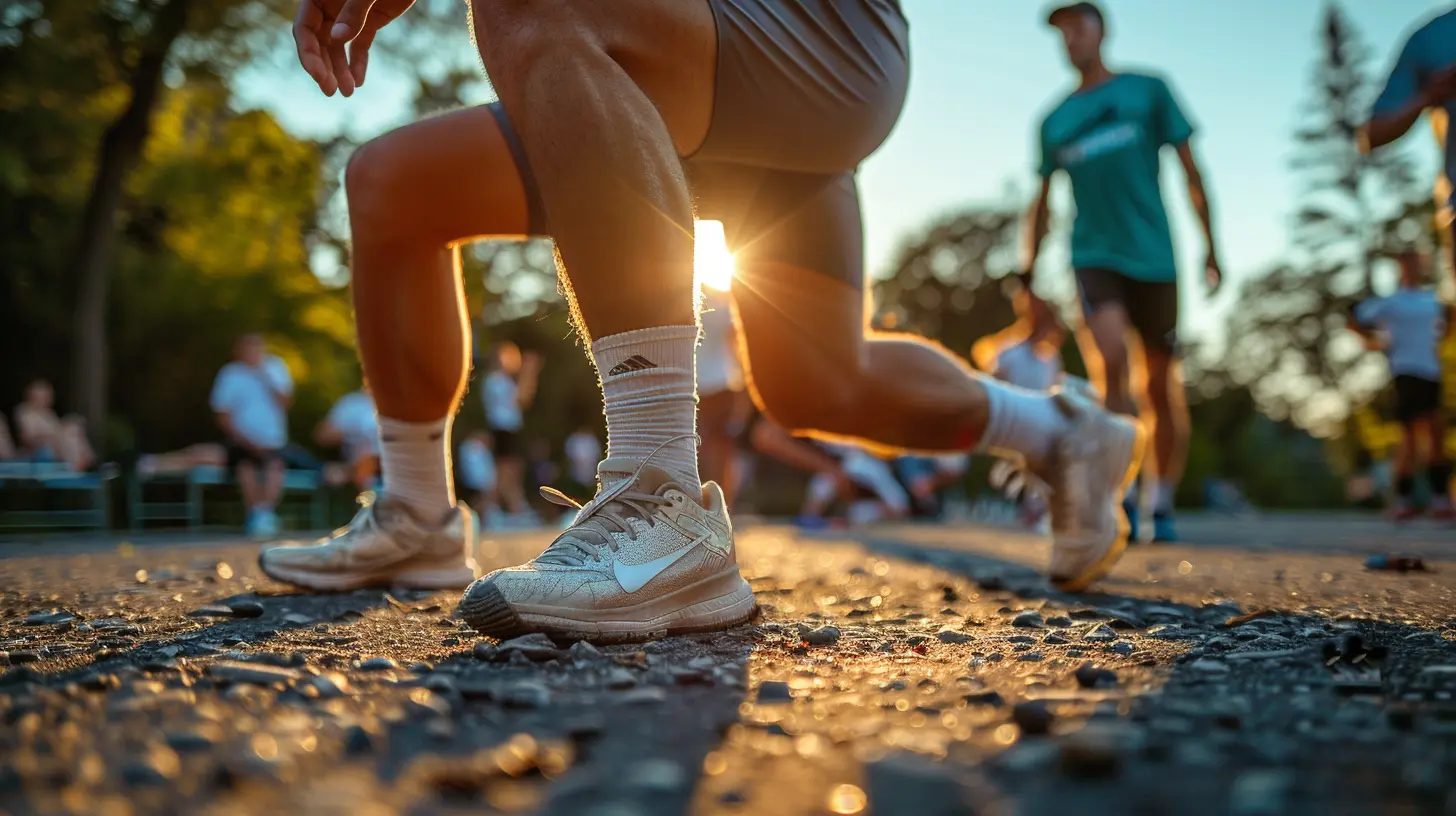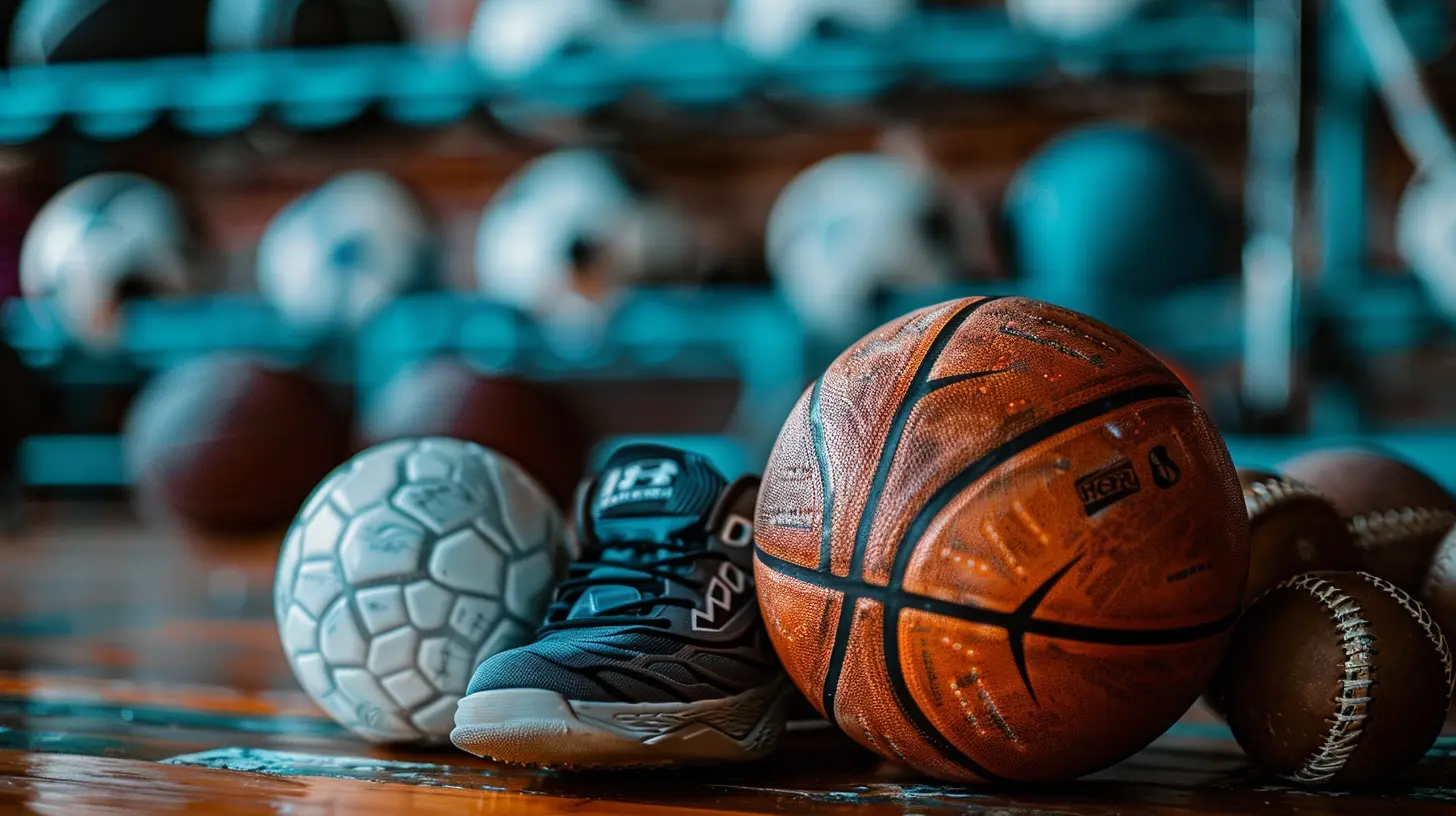The Connection Between Mental Focus and Physical Injury Recovery
17 September 2025
Injuries are a part of life, especially if you're into sports or any physical activities. Whether you’re a professional athlete or just someone who enjoys breaking a sweat at the gym, injury recovery is something we all dread. But here's the kicker: while we tend to focus on the physical aspect of rehabilitation—like strength training, stretching, and mobility—we often overlook another critical component: mental focus.
You might be wondering, “How does mental focus tie into physical recovery?” Well, it goes deeper than you think. The mind and body are interconnected in ways we often take for granted. In this article, we’re diving into how sharpening your mental focus can speed up your injury recovery and get you back to doing what you love, faster and better.

Why Mental Focus Matters in Recovery
Let’s start with the basics. When you get injured, it’s not just your body that takes a hit—your mind does too. The frustration, the impatience, the anxiety of not knowing when you’ll be back to your normal self, all of these emotions can cloud your mental focus. And trust me, that can delay your recovery more than you’d like to admit.Think of your mind as the control center of your body. When you’re focused, your mind sends clear signals to your muscles, bones, and tissues, telling them what to do. But when your brain is foggy, distracted, or stressed, those signals become scrambled, and the recovery process can slow down.
Here’s the good news: by improving your mental focus, you can optimize your body’s healing process. It’s like giving your recovery a turbo boost.
The Science Behind Mental Focus and Physical Healing
To understand the connection between mental focus and physical recovery, let’s get a bit scientific. Studies show that our brain plays a significant role in how our body heals. When you’re mentally focused and calm, your brain releases chemicals like endorphins and serotonin, which not only improve your mood but also aid in pain management.On the flip side, when you're constantly stressed or anxious, your body releases cortisol—a hormone that can slow down healing by suppressing your immune system and increasing inflammation. Essentially, a stressed mind keeps your body in a state of fight or flight, not recovery.
In short, your mental state directly affects how your body heals. If you're mentally scattered or stressed, the recovery process becomes longer and more painful. If you're focused and positive, your body responds faster and more efficiently.

The Role of Visualization in Injury Recovery
Now, let’s talk about visualization. No, I'm not asking you to sit in a dark room and chant mantras (unless that’s your thing). Visualization is a technique used by elite athletes and physical therapists alike to promote recovery.When you visualize your body healing, you're mentally rehearsing the recovery process. In other words, you're training your brain to believe that your body is getting better, which can lead to actual physical improvements.
Here’s how it works: close your eyes and imagine your injured area healing. Picture the broken bone mending or the torn muscle tissue repairing itself. When you do this regularly, your brain starts to "buy into" the healing process, encouraging your body to follow suit.
Sounds like magic, right? But it’s not. It’s science-backed. Research shows that athletes who use visualization during injury recovery tend to heal faster and more completely than those who don’t. It helps to reduce anxiety, increase motivation, and keep your mental focus sharp—all key ingredients in a successful recovery.

Mindfulness and Meditation: Tools for Sharpening Focus
Alright, so how do you keep your mental focus strong during recovery? One of the most effective ways is through mindfulness and meditation.Now, before you roll your eyes, hear me out. Mindfulness isn’t just about sitting cross-legged and humming. It’s about being present and fully aware of your thoughts, feelings, and sensations—without judgment. When you're mindful, you're training your brain to focus on the here and now, which helps you stay positive and motivated during the often grueling recovery process.
Meditation, on the other hand, is like a workout for your brain. Just like you train your muscles to get stronger, you can train your mind to focus better. Even five to ten minutes of daily meditation can reset your mental state, reduce stress, and improve your body's ability to heal.
Think of it this way—your mind and body are like a team. When both are in sync, they can perform at their best. But when one slacks off, the other suffers. Meditation helps keep them working together, allowing you to recover faster.
Simple Mindfulness Practices to Try During Recovery
If you're new to mindfulness, don’t worry—it’s easier than you think. Here are a few simple practices you can incorporate into your recovery routine:- Breath Focus: Sit in a comfortable position, close your eyes, and focus on your breathing. Inhale slowly through your nose, hold for a few seconds, and exhale through your mouth. Repeat for 5-10 minutes. This simple exercise helps calm your mind and reduce stress, which is crucial for recovery.
- Body Scan: Lie down and mentally scan your body from head to toe. Pay attention to the sensations in your injured area. Are you feeling pain or discomfort? Observe these sensations without judgment. This practice helps you become more aware of your body and its healing process.
- Gratitude Practice: Each day, take a moment to reflect on three things you're grateful for, even if it’s as simple as being able to move without pain. Gratitude shifts your focus from what you’ve lost (due to injury) to what you still have, creating a more positive mindset for recovery.

The Psychological Impact of Injury: Staying Positive
Let’s be real for a second. Injuries suck. They mess with your routine, throw off your progress, and can make you feel frustrated and down. But here’s the thing—your mental attitude can make or break your recovery.It’s easy to let negative thoughts creep in when you’re sidelined. You might think, “I’ll never get back to where I was,” or “What if I re-injure myself?” These thoughts, while natural, can actually slow down your recovery.
Maintaining a positive mindset is crucial. The body responds to the mind. If you’re constantly feeding it negativity, your body will respond with slower healing and more pain. On the flip side, if you stay positive and focused on your recovery goals, your body will follow suit.
How to Stay Positive During Recovery
- Set Small, Achievable Goals: Instead of focusing on the end result (like getting back to playing sports), set smaller, more manageable goals. For example, aim to walk without crutches by a certain date or to complete a specific range of motion during physical therapy. Small wins build momentum and keep your spirits high.- Surround Yourself with Support: You don’t have to go through recovery alone. Surround yourself with friends, family, and teammates who can lift you up when you’re feeling down. Sometimes, a little encouragement is all you need to stay positive.
- Celebrate Progress: Recovery is a journey, and every step forward is worth celebrating. Whether it’s being able to bend your knee a little more or spending an extra five minutes on the stationary bike, acknowledge your progress. It keeps you motivated and focused on the bigger picture.
The Role of Patience and Mental Discipline
Let’s not sugarcoat it—recovery takes time. And patience is not something that comes naturally to most of us, especially when we’re eager to get back to our normal lives. But here’s the thing: rushing your recovery won’t do you any favors. In fact, it can lead to setbacks and re-injury.Mental focus during recovery isn’t just about staying positive, it’s about being disciplined enough to follow through with your rehab routine, even when it’s boring or frustrating. It’s about listening to your body and knowing when to push and when to back off.
Patience is key here. Recovery is not a race; it’s a process. And the more disciplined and focused you are, the smoother that process will be.
Tips for Building Mental Discipline During Recovery
- Follow Your Rehab Plan: It can be tempting to skip physical therapy sessions or exercises, especially when you’re feeling discouraged. But sticking to your rehab plan is crucial. It’s designed to help you heal properly and prevent future injuries.- Track Your Progress: Keeping a journal or log of your recovery can help build discipline. Write down what exercises you did, how you felt, and any progress you made that day. It’s a tangible way to see that you’re moving forward, even if it feels slow.
- Remind Yourself of the Bigger Picture: When you’re in the trenches of recovery, it’s easy to lose sight of your long-term goals. Keep reminding yourself why you’re going through this process—whether it’s to get back on the field, run a marathon, or simply live without pain.
Conclusion: Mind Over Matter
At the end of the day, recovery is as much a mental game as it is a physical one. The connection between mental focus and physical injury recovery is undeniable. By staying mentally sharp, positive, and disciplined, you give your body the best possible chance to heal quickly and fully.Remember, your mind is a powerful tool in the recovery process. Use it wisely, and you’ll be back on your feet before you know it.
all images in this post were generated using AI tools
Category:
Sports MedicineAuthor:

Preston Wilkins
Discussion
rate this article
1 comments
Sloane Franco
Great insights! Understanding the mental aspect of recovery really highlights how crucial focus and mindset are in overcoming physical injuries. A must-read for athletes!
September 29, 2025 at 11:15 AM

Preston Wilkins
Thank you! I'm glad you found the insights valuable. Mental focus is indeed a key component in recovery for athletes.


